Meet the Women Lighting Up the Nigerian Art Scene
Inside Lagos’ burgeoning art scene, female artists, who centre their experiences in their art, have come to the forefront.
Previously, the Lagos art scene was at its liveliest during the last few months of the year when galleries and art fairs like Art X Lagos, Lagos Biennial and Lagos Photo would open their doors to visitors and immerse the city in art. In recent years however, the art scene has evolved to be celebrated throughout the year, with a growing roster of talents and increasing diversity and inclusion, as female Nigerian artists, who centre their experiences in their work, have come to the forefront.
“There are more of us now.” Marcellina Akpojotor, an artist who chiefly uses Ankara fabric to explore female empowerment, family and community, tells me on a call. “In the past, maybe there would be a handful sprinkled here and there, but look at us today, there’s an actual community of women in art from Nigeria, dominating and doing amazing things and getting the popularity they deserve.”
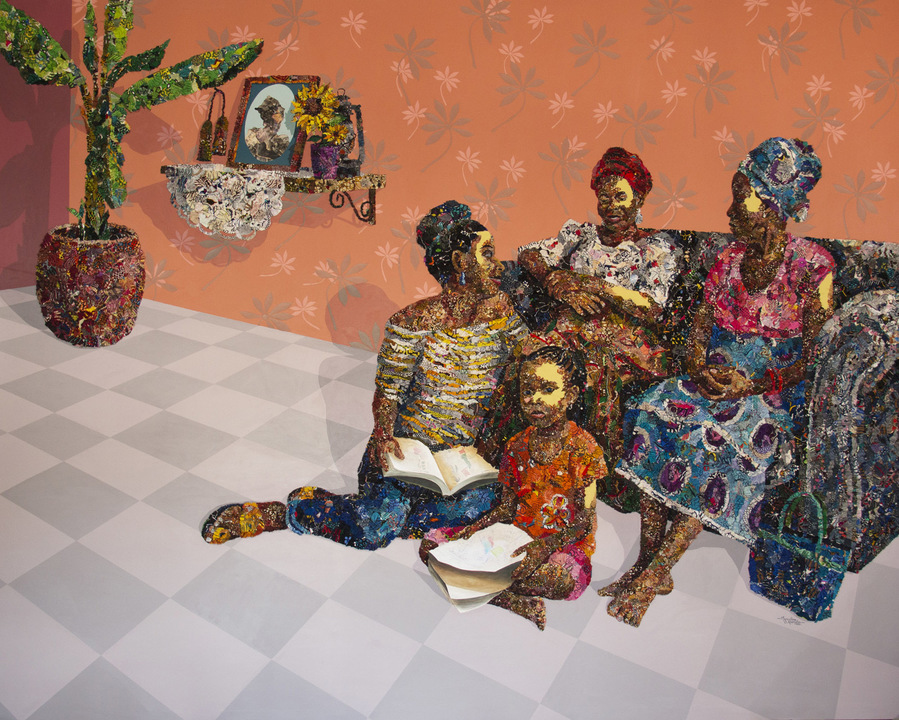 Marcellina Akpojotor, Songs of Home, 2021, Fabric, Paper and Acrylic on Canvas
Marcellina Akpojotor, Songs of Home, 2021, Fabric, Paper and Acrylic on Canvas
For these artists, art takes on a significance as a way to celebrate the intersection of their identities as Black, African and female. It’s a way to tell their stories and navigate the world itself. “Women inspire me - their ability to exist against all odds, their beauty, their innocence.” Jekein Lato-Unah, a digital artist and oil painter who mostly creates art that focuses on Nigerian women. “The privileges I am awarded always reminds me that there are people who have it worse, and this causes me to create pieces that give hope to such people and ensure that empathy is learnt by others.” Her work focuses on superimposing Black women into places of power and luxury and exploring a world where the lives of Black women aren’t centred on suffering or oppression.
Chidinma Nnoli, a contemporary artist who focuses on exploring the effects of growing up in a conservative Nigeria, resonates with this. ‘‘It’s so amazing how [many] young artists and women artists are taking up space.’’ she says. ‘‘This is an art world that has gatekeepers and I think with artists using social media and programs like the Rele Young Contemporaries focusing on young artists, it only gets better. Also with more artists like Chigozie Obi and Blossom Oyeyipo speaking on forbidden issues about the female body, these are conversations that should be had especially in a conservative country like Nigeria and they are doing that with [their] art.’’
In recent times, offerings from the Nigerian creative scene have garnered global attention thanks to the rise of Afrobeats and the success of fashion designers hailing from the country. “The achievements of Nigerians here and in the diaspora has exposed the world to our culture,” Leto-Unah explains. “Like music, we are now associated with magnificent art and people want to get involved before it’s too late.”
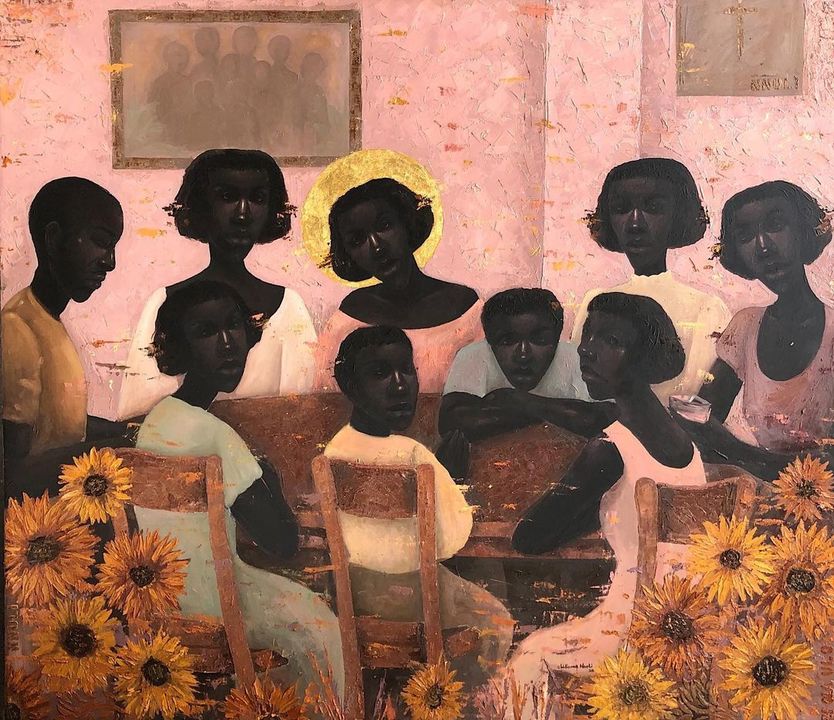 Chidinma Nnoli, To Ezi Na Ulo (Family), 2020, Oil on Canvas
Chidinma Nnoli, To Ezi Na Ulo (Family), 2020, Oil on Canvas
There was never a lack of talent among female artists in Nigeria but an absence of suitable platforms meant they couldn’t connect with the larger population. With global eyes now fixed on the Nigerian art scene, and with the rise of social media, it has become easier for them to share their work and build followings without needing the support of traditional art galleries.
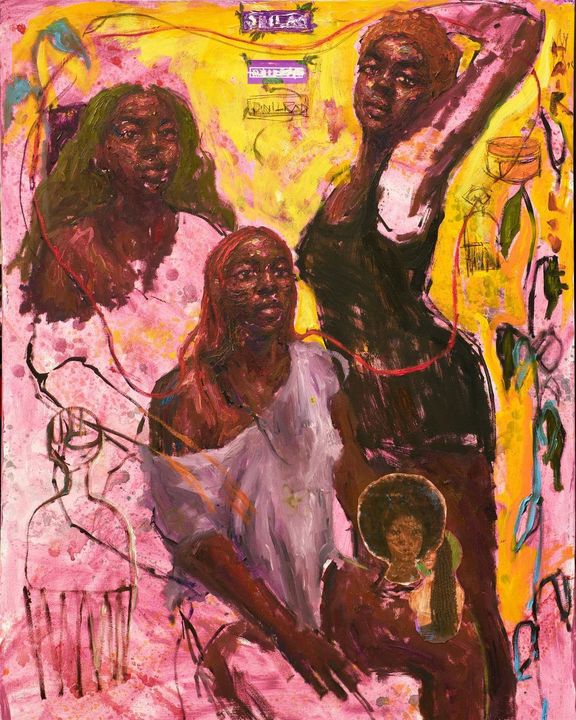
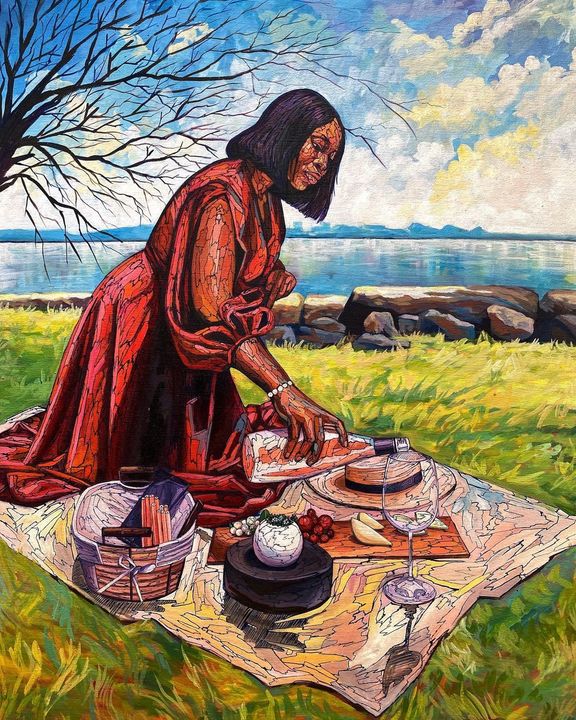
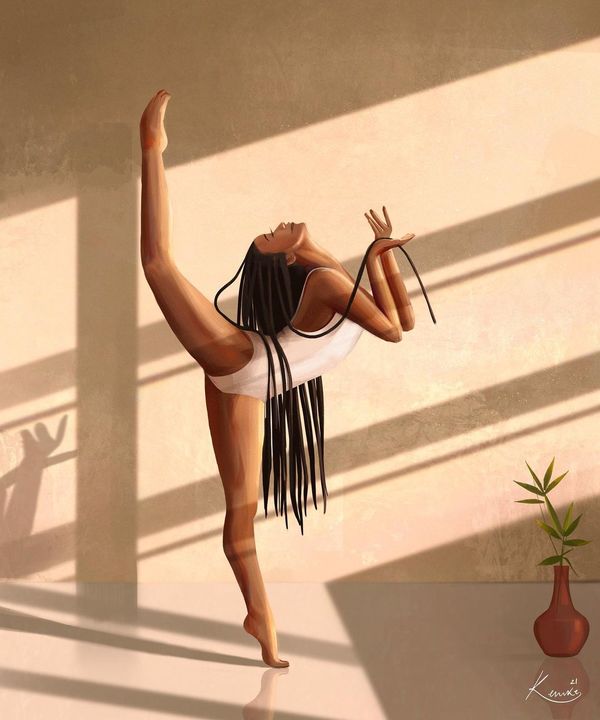
“We just needed a channel to show the world how talented we are,” Renike Olusanya, a digital artist and recent nominee for The Future Africa Awards for Art prize tells Limna. “This is where the role of social media comes in. It has enabled us to talk about and market our works more strategically. If it wasn’t for social media, I wouldn’t be as well-known as I am today, because I’m not one to go physically from establishment to establishment to present my art. Social media has also helped reduce the amount of sexual harassment female artists experience when we try and showcase our works physically.”
We just needed a channel to show the world how talented we are… Social media has enabled us to talk about, and market, our works more strategically.” Renike Olusanya, artist.
While social media has helped mitigate these risks, the rising popularity of contemporary artists in Nigeria naturally exposes their work to increased criticism. For female artists, this can also descend into misogynistic and sexist comments. As they navigate an uber conservative country like Nigeria, they face discrimination almost daily. “You get sexist comments here and there because men are unable to believe that a beautiful woman can create and make a career from painting,” Olusanaya explains. “There have also been comments that I’m painting women too much and I should paint more men, but no one is in a place to dictate the subject matter of my work.”
The patriarchy they face can also serve as an important source of inspiration for these artists, with each choosing a different perspective and way to explore it. For Renike, it becomes even more to paint women who are free, happy and content in contrast to a conservative country that forces women, especially creative and unconventional women, to be anything but that. Similarly, Jekein likes to explore women at leisure, resting and content. She draws inspiration from who she is, who she wants to be and allows her work to shape what could be a new dream for women who feel like the goals set by the patriarchy do not represent them.
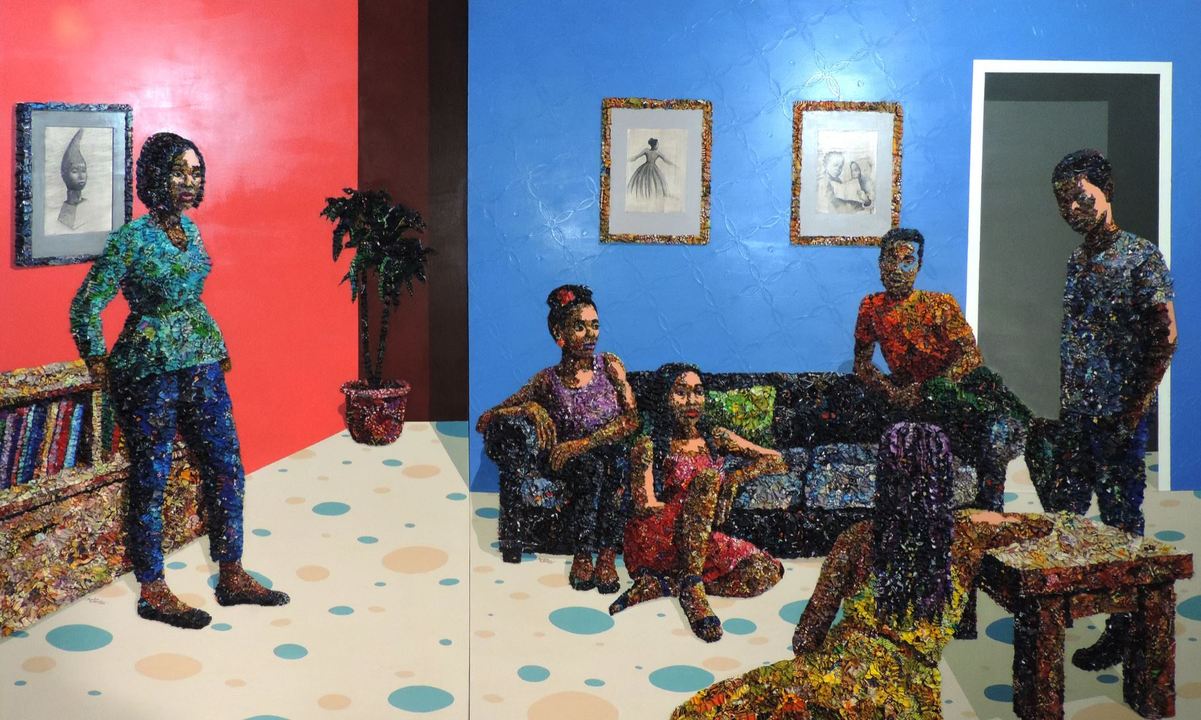 Marcellina Akpojotor, Rhythm of Evolving Story, 2020
Marcellina Akpojotor, Rhythm of Evolving Story, 2020
For Akpojortor, it’s imperative to explore and document the history of women and female empowerment in Nigeria. What does it look like now? How connected are the women of today with the women who came before? Her series, An Ode To Beautiful Memories, traces her familial history from her daughter, to herself, her mother and then her grandmother, sieving through memories to create an image of a grandmother she barely remembers and has no photo reference of.
“There’s so much history here, so much to say about feminism and the female experience that has been passed down,” Akpojotor says. “I want to use my art to document it, to immortalise it.”
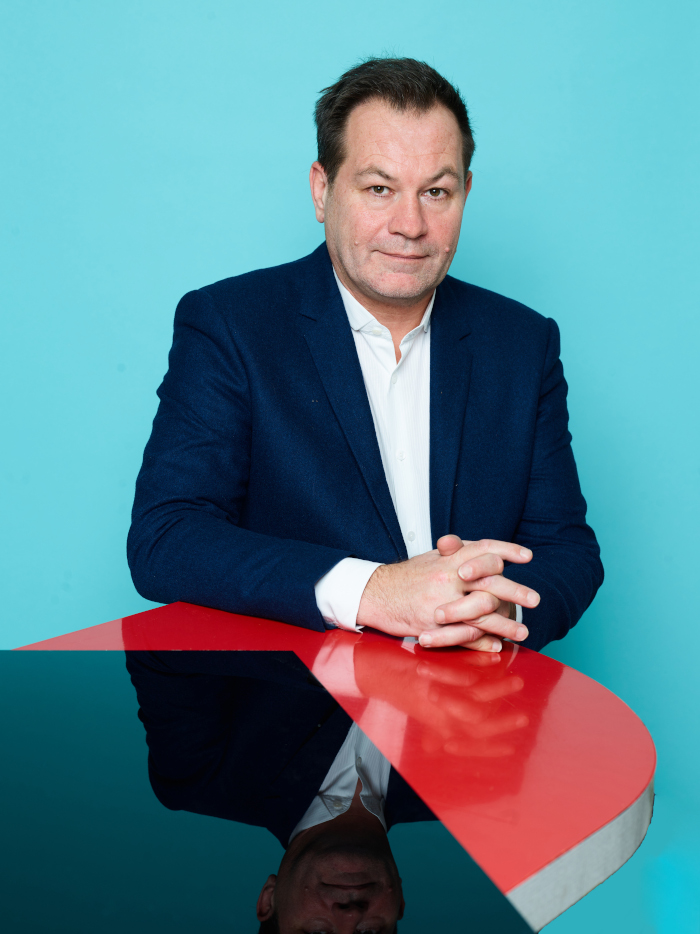
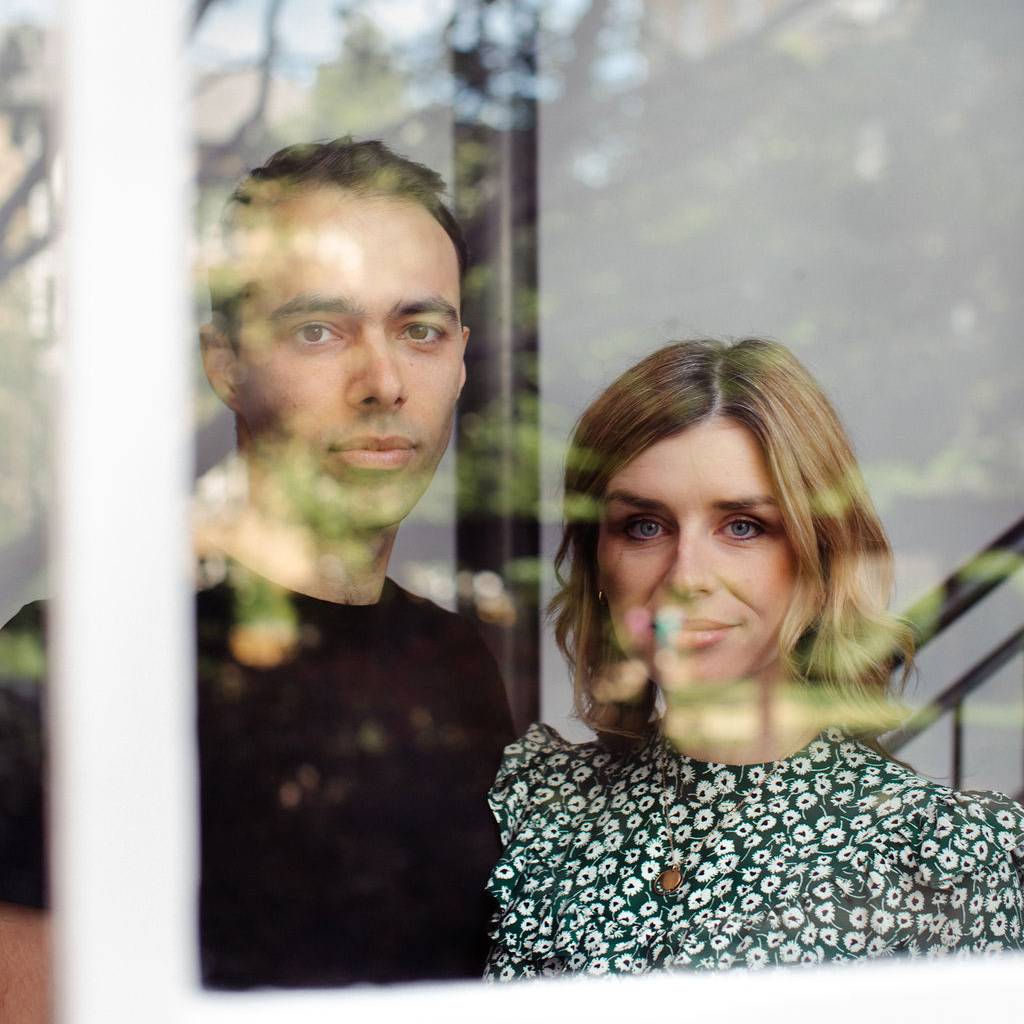
-min.jpeg)